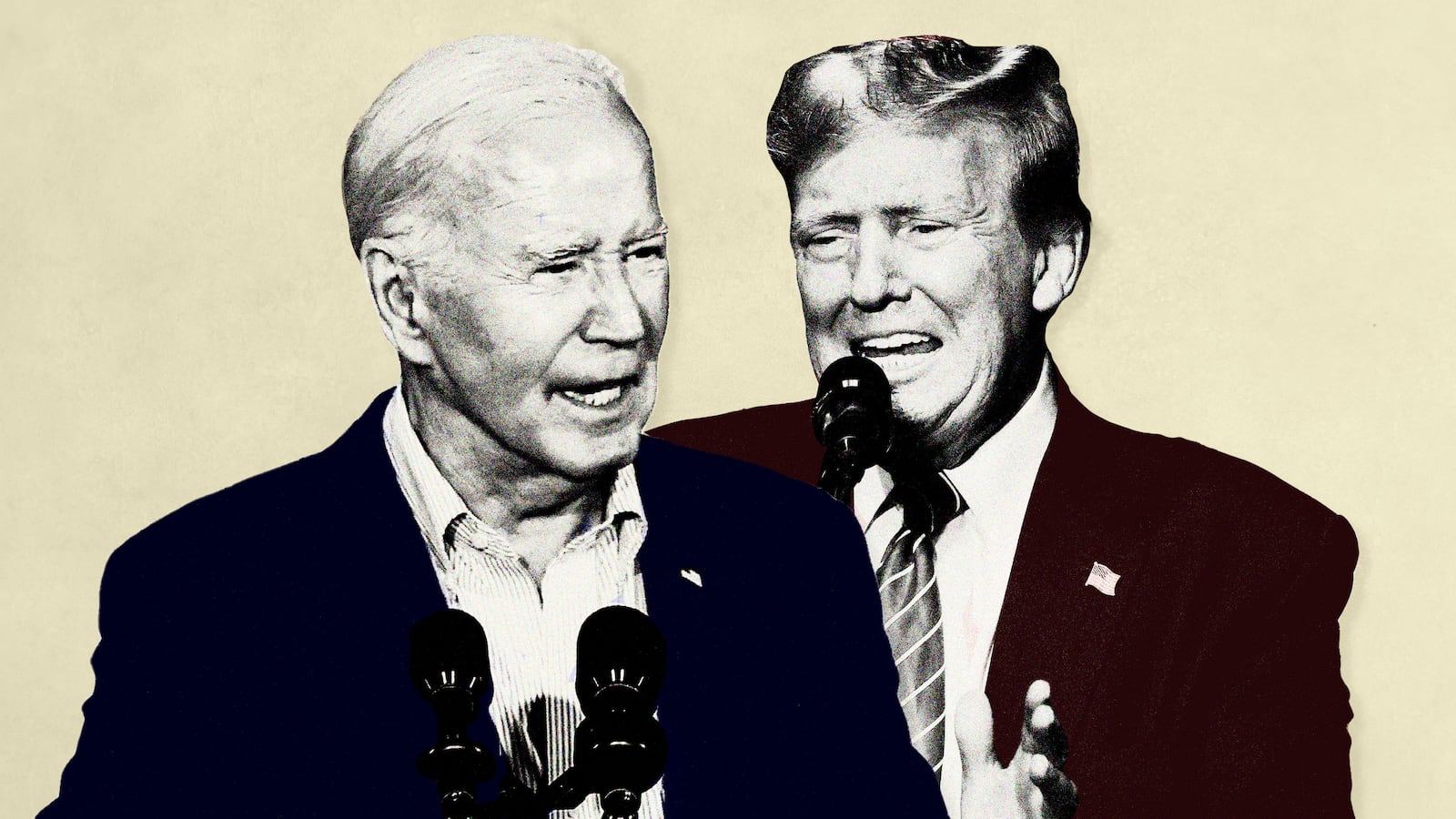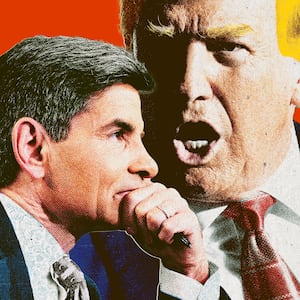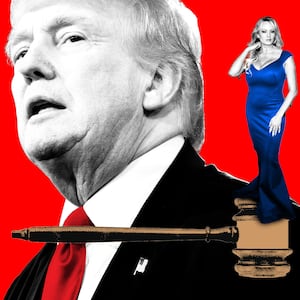Now that we have two presumptive nominees attacking each other at every turn, will they dare to debate?
The assumption among the Washington cognoscenti is that neither Joe Biden nor Donald Trump is eager to take the stage with the other.
Top Trump campaign officials attending the Gridiron dinner earlier this month were seated in close proximity to Biden campaign people, prompting this introduction from PBS’s Judy Woodruff, “If you see them in a corner, they’re talking about avoiding a debate and how to blame the other side.”
The former president has said he will debate anywhere, anytime, even implying he would abide by the bipartisan Commission on Presidential Debates (CPD), which has sponsored the debates since 1988. President Biden’s people are non-committal, leaving the door open by not saying yes or no—while they’re skeptical that Trump in the end will agree to debate.
Asked by a reporter as he exited the congenial dinner with Washington insiders if he would take on Trump head-to-head, Biden replied, “Let’s see if he’s serious.” Does he think Trump really wants to debate? “I don’t know what the hell he wants,” Biden said.
Presidential debates have been a feature of modern politics since 1976 when President Gerald Ford agreed to debate challenger Jimmy Carter, who four years later as president felt obligated to debate his challenger, Ronald Reagan. It didn’t go well for either incumbent, a lesson that might be front of mind for the Biden team.
We’ve already seen what a Trump-Biden matchup is like. In 2020, an exasperated Biden called Trump a “clown,” for interrupting 71 times during the 98-minute debate.
“Will you shut up, man?” Biden pleaded. According to The Washington Post, Biden interrupted 22 times trying to get in a word edgewise.
That debate didn’t help Trump, and it soon emerged that he likely had COVID. He arrived too late at the site to be tested, but had tested positive earlier that day, a result he called “fake news.” He was hospitalized two days later.
Do these debates matter? “They actually do,” says Kathleen Hall Jamieson, the director of the Annenberg Public Policy Center at the University of. Pennsylvania, “but they can be so god-awful that audiences flee.”
This year’s string of GOP debates proved the case. Without the frontrunner, they were not a big draw.

US President Joe Biden speaks at Stupak Community Center on March 19, 2024 in Las Vegas, Nevada.
Ian Maule/Ian Maule/Getty ImagesHowever, a face-off between Trump and Biden would break all ratings records, and contrary to conventional wisdom, Jamieson tells The Daily Beast there are a lot of undecided voters, “not undecided about whom they’ll vote for—they know that—they just don’t want to vote, they’re fed up with the whole process.”
The debate stage might be the last best chance to motivate these voters, says Jamieson. “The American people deserve debates that are sufficiently civil. In a close election, almost anything can shift votes. Debates matter more in a close election than in a landslide. Contrary to all the cynics out there, candidates do try to act on their promises.”
Concern about debate format predates Trump. A 2015 report from the Annenberg Public Policy Center of the University of Pennsylvania explored the idea of a “chess clock format,” where each candidate has a set amount of time to draw down, eliminating the problem of one candidate dominating. Holding the debate in a TV studio without an audience would lessen the spectacle, but the spectacle has become part of the scene.
The debate dates and sites have been selected, beginning at Texas State University on Sept. 16, Virginia State University on Oct. 1, and the University of Utah on Oct. 9, with a vice-presidential debate scheduled for Sept. 25 at Lafayette College in Easton, Pennsylvania.
The bipartisan CPD works with the two camps to find common ground. To prevent the debates from spinning into shouting incoherence, the power to cut off a candidate’s microphone is essential. In the final Biden-Trump 2020 debate, that power was exercised, but only rarely by the CPD—not the moderator, NBC News’s Kristen Welker.
To debate or not to debate will depend on the state of the race. If Trump is leading in crucial swing states, he might be better off finding an excuse not to debate. His crazed behavior in 2020 helped Biden win a close race in the battleground states.
If, as expected, we have another nail-biter of a finish to this campaign, there will be pressure on both sides to debate, with likely measures in place to silence Trump—like cutting off his microphone if he flouts the rules.
But even then, he could keep talking.
“As a practical matter, even if the president’s microphone had been shut, he still could have continued to interrupt, and it might well have been picked up on Biden’s microphone, and it still would have disrupted the proceedings in the hall,” moderator Chris Wallace (then of Fox News) said after the explosive first 2020 debate.

Republican presidential candidate and former U.S. President Donald Trump addresses a campaign rally at the Forum River Center March 09, 2024 in Rome, Georgia.
Chip Somodevilla/Getty Images“There’s no way to stop him from speaking,” says Bill Galston, a senior fellow in governance studies at the Brookings Institution. “He respects no rules.” Galston is skeptical the two sides can get to “yes” on the format, or the moderator and the reporters that do the questioning.
Because of Trump and his well-known behavior, “Biden’s advisers will have to game out a variety of responses, including walking off the stage. They’ll have to think through how to react, and what would be the consequences of walking off the stage,” Galston adds.
For now, Trump appears to think he can bring down Biden regardless of format. As events unfold and his advisers have his ear, he may change his mind if it means the difference between winning and losing.
For Biden, the expectations are so low that he can vigorously debate that beating them shouldn’t be that hard. The American people deserve a sufficiently civil debate where they might learn something about the two men when one of them will lead the country for the next four years.
On the other hand, says Galston, after months of relentless negative campaigning, where each candidate is discrediting and demeaning the other, “Do people deserve to see an extra helping of World Wide Entertainment wrestling?”









